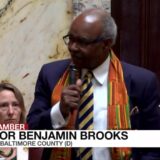Welcome to the latest edition of “Last week in Weed,” catching you up on the latest breaking news and industry developments in the world of cannabis.
Here’s what you may have missed over the last week:
New Mexico Targets Illicit Cannabis Sales
New Mexico’s House is set to vote on a bill to create a Marijuana Enforcement Bureau to target illicit sales, aiming to protect the legal cannabis industry. The bill would empower authorities to investigate illegal operations, conduct inspections, and make arrests. This could enhance regulatory oversight but raises questions about enforcement priorities and resource allocation.
Indiana Adjusts THC Impaired Driving Bill
Indiana lawmakers amended a bill that would have set a saliva THC test threshold for impaired driving, opting instead to allow new test results as evidence in court. Concerns about false positives and the lack of a clear impairment threshold led to the change. The debate highlights the ongoing challenge of defining cannabis impairment compared to established alcohol limits.
Arkansas Redirects Cannabis Tax Revenue to School Breakfasts
The Arkansas House passed a bill to use medical marijuana tax revenue to fund free school breakfasts for students, regardless of income. The bill now returns to the Senate before heading to Governor Sarah Huckabee Sanders, who supports the initiative. Proponents argue it addresses hunger and educational challenges, while some opponents express concerns about this funding.
CBD’s Potential in Skincare and Wound Healing
A study suggests that CBD could enhance sunscreen, hair care, and wound healing products due to its anti-aging and antioxidant properties. It promotes skin cell growth without toxicity at low concentrations. Future research will explore long-term effects and safety in more complex skin models.
CBD Usage Trends in America
A new analysis of federal data reveals that over 10% of Americans used CBD within the past month. Usage rates are notably higher among individuals who also consume cannabis. The study highlights potential health implications and the need for public awareness regarding CBD’s effects.
RFK Jr. Calls for Science-Driven Cannabis Policy
RFK Jr. raised concerns about the potential harms of high-potency cannabis but emphasized the importance of state-level legalization to facilitate further research. His balanced stance—cautiously recognizing risks while supporting scientific inquiry—reflects a pragmatic approach to cannabis policy. This could appeal to both reform advocates and cautious skeptics, signaling a shift towards evidence-based regulation.
Another American Detained in Russia for Cannabis
Russia detained another American at a Moscow airport for cannabis possession, raising concerns about the risks of traveling with cannabis in countries with strict drug laws. The incident occurred shortly after Marc Fogel’s release, highlighting ongoing tensions and differing international cannabis policies. This case once again signals the importance of understanding local laws, especially in regions known for harsh penalties.
Strong Support for Medical Cannabis in North Carolina
A new poll shows that 71% of North Carolina voters support legalizing medical marijuana, with bipartisan backing across most demographics. This widespread approval indicates growing public acceptance, potentially influencing state lawmakers to reconsider restrictive policies. As neighboring states expand medical cannabis programs, North Carolina may face increased pressure to follow suit, reflecting a broader national trend toward legalization.
































